Jane Goodall, the primatologist and campaigner best known for her 1960s research in Africa that revealed the true nature of chimpanzees, has died. She was 91.
Ms Goodall died of natural causes, the Jane Goodall Institute said on social media. She turned a childhood love of primates into a lifelong quest for protecting the environment. She died on Wednesday, the institute she founded said.
A natural on television and a campaigner, she spent recent decades visiting international conferences and green projects she launched around the world. She visited the UAE in February.
"Dr Goodall’s discoveries as an ethologist revolutionised science, and she was a tireless advocate for the protection and restoration of our natural world," the foundation said.
The primatologist-turned-conservationist turned her love of wildlife into a life-long campaign that took her from a seaside English village to Africa.
Born in London and without the funds to take a university course, she shot to international stardom in 1965 when she was featured on the cover of National Geographic for her trailblazing research on chimpanzees in Tanzania.
The pioneering, up-close study of the behaviour of chimpanzees in the 1960s was the first to observe them using tools, a capacity that was until then thought to belong only to humans.
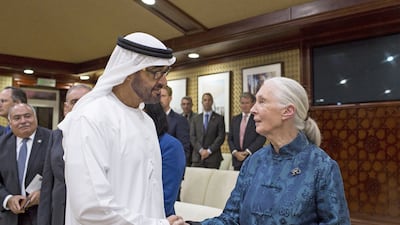
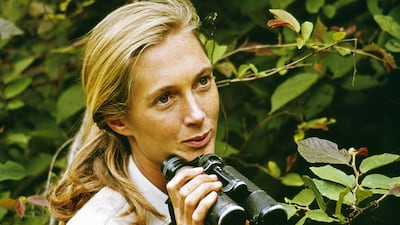

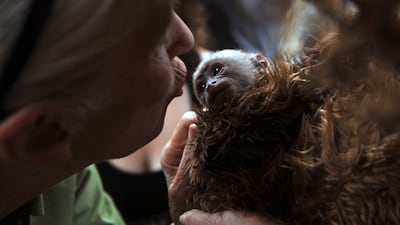
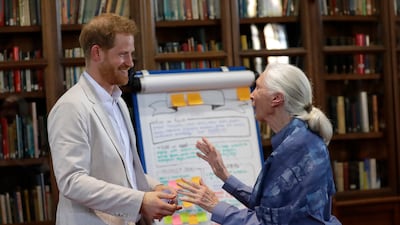

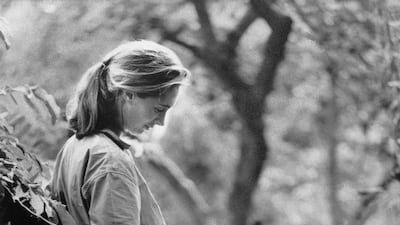


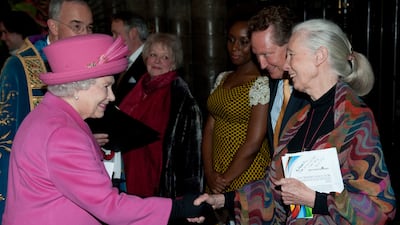

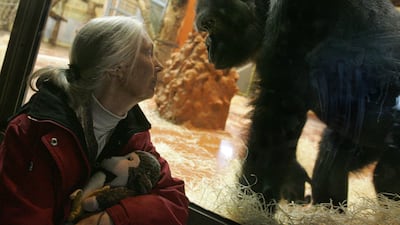
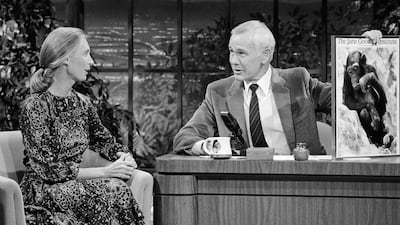


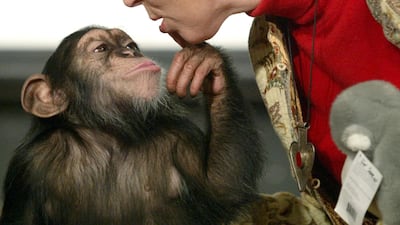

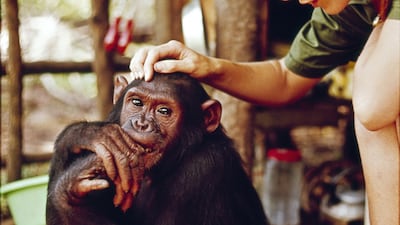






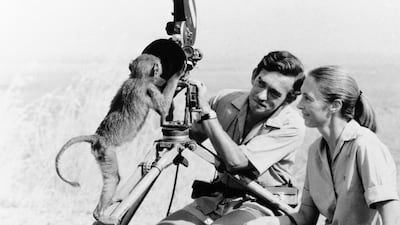


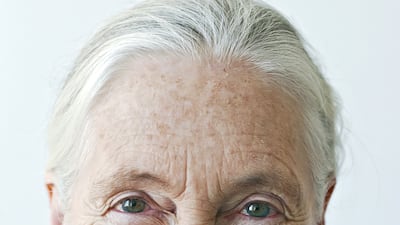
During her February visit to Dubai, she launched a bee park, named Jane Goodall’s Pollinator Garden in her honour, at Expo City Dubai. Renowned natural history broadcaster David Attenborough described her as "a woman who had turned the world of zoology upside down".
Ms Goodall's scientific breakthroughs "have profoundly altered the world's view of animal intelligence and enriched our understanding of humanity", the John Templeton Foundation said when it awarded her its prestigious individual lifetime achievement award.
In an interview with The National, she said she picked up her interest in the natural world at a critical moment. “When I was 10, everybody laughed at me because I wanted to go to Africa and live with wild animals,” Ms Goodall said.
“And they said, 'How can you? You don’t have money and World War Two is raging and you’re just a girl.' Mum said, 'If you want something like this, you’re going to have to work really hard and take every opportunity. Don’t give up.'
"I just wish Mum was alive to know how many people have said or written ‘because you taught me, because you did it, I can do it too'.”
It was David Greybeard, the chimpanzee, that provided her breakthrough insight, using a shoot of grass as a spoon on a termite mound. He stopped, picked up a leafy twig, peeled it and dipped it in the nest to make the most of the high-protein meal.
Ms Goodall became only the eighth person to earn a PhD at Cambridge without first earning an undergraduate degree when she presented her findings from Tanzania.
A prolific author, she published more than 30 books with her observations, including her 1999 bestseller Reason for Hope: A Spiritual Journey, as well as a dozen more titles aimed at children.
Ms Goodall said she never doubted the planet's resilience or human ability to overcome environmental challenges.
The campaigning side of her life saw Ms Goodall, who was made a dame in the UK honours list, embrace a plant-based diet and seek to inspire younger generations to appreciate the planet.
In 2023, the creation of a new TV series for children, Jane's Animal Adventures, encouraged children to join her foundation's Roots and Shoots programme, which is aimed at empowering children to pioneer change in their communities.
“I think children absolutely love that kind of mixture of reality with these, you know, wild journeys through space and animals coming to life," Ms Goodall said.
Six years earlier she had presented awards to UAE chapters of Roots and Shoots, which she founded in 1991. “Children much more quickly understand the cumulative effect of small choices," she added. "They get it and that’s good.”


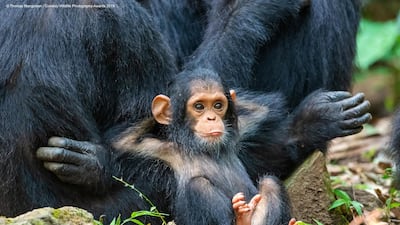
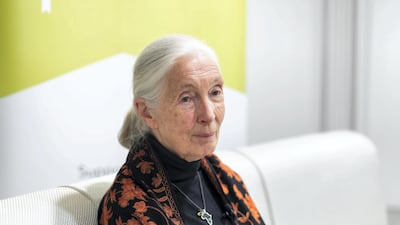





Ms Goodall married Dutch photographer Hugo van Lawick, who had immortalised her and her chimpanzees in National Geographic and Life magazines. A model of David Greybeard graced the wedding cake.
The couple had a son, Hugo Eric Louis van Lawick, nicknamed Grub.
A second husband, Derek Bryceson, a former director of Tanzania's national parks and an MP, died in 1980 of cancer.
Reaction
A statement from the UN mourned the loss of Ms Goodall as a tireless worker for "our planet and all its inhabitants, leaving an extraordinary legacy for humanity and nature".
The UK's Prince William, who shares Ms Goodall's passion for conservation, paid a personal tribute. “The world has lost an extraordinary voice with the passing of Dame Jane Goodall," he said. “Her boundless curiosity, compassion and pioneering spirit transformed our understanding of the natural world.
“She challenged us all to make a difference and inspired me and countless others to work to protect our planet. Jane Goodall made a difference."
Naturalist and TV presenter Chris Packham paid tribute to Ms Goodall, calling her “remarkable” and her work “revolutionary”.
“She was remarkable and it spoke of that determination which endured throughout the course of her life, because here, at the age of 91 on a speaking tour, still advocating for life on Earth in her calm, calculated, deliberate way," he said.


